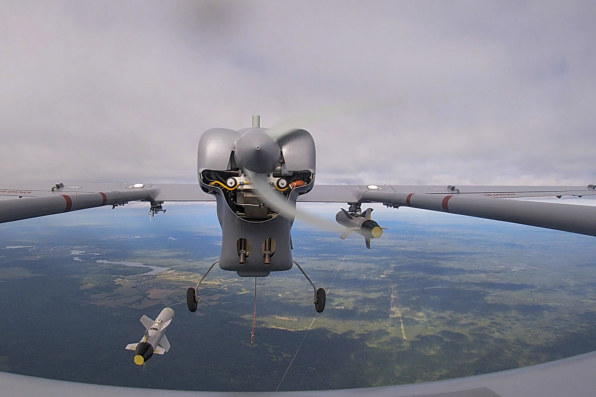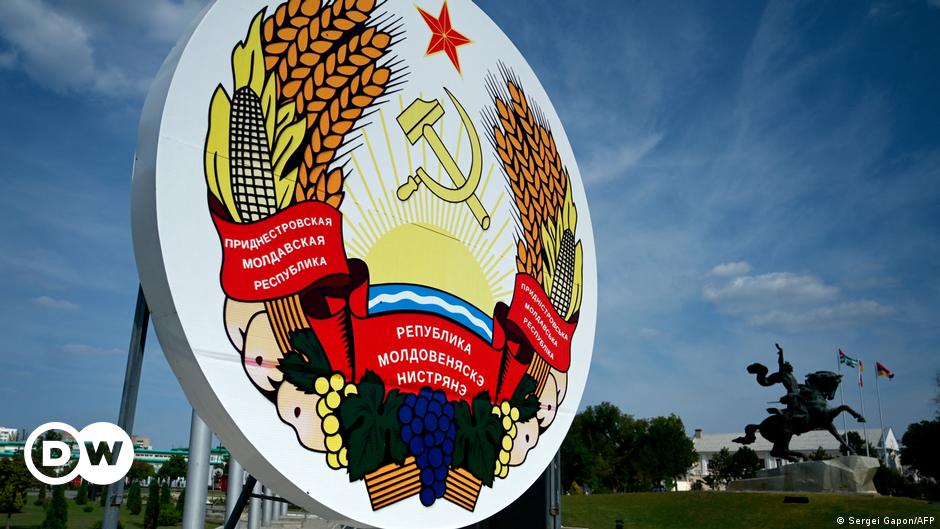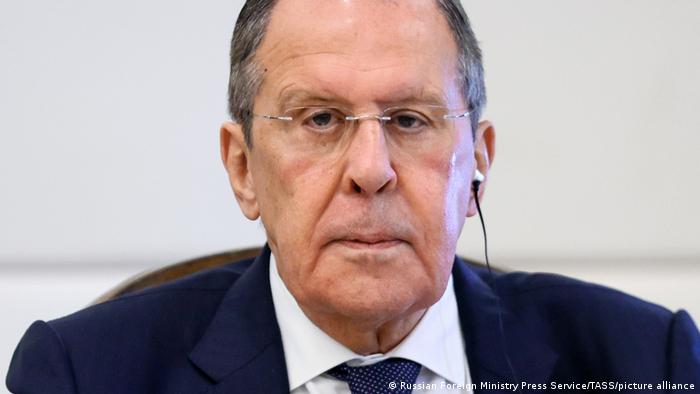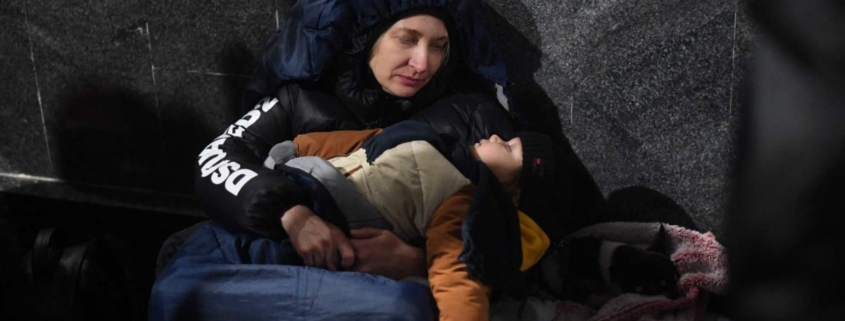Air and Space Forces raise bonus amounts for technically trained cyber troops

A senior airman with five years in cyber warfare is eligible for an $83,610 bonus for re-enlisting for six years, the same amount due airmen in the pararescue, combat control and tactical air control party fields. (J.M. Eddins Jr./U.S. Air Force)
The Air Force and Space Force are prepared to pay a premium to keep their cyber-trained professionals wearing blue, according to the updated list of bonus-eligible career fields.
Released Sept. 8, that list added two cyber-related career specialties for a total of 65 careers eligible for a re-enlistment bonus, including five existing cyber fields whose bonus potentials also increased.
“This [Selective Retention Bonus] addition is an acknowledgement of extreme demand for the advanced skills and talent within the targeted cyber specialties, as well as their criticality to the future force,” Air Force spokeswomen Laurel Falls told Stars and Stripes by email Tuesday.
The largest bonus bumps within the cyber fields went to the cyber warfare and defense specialties. Airmen who re-up in those fields would receive the same amount as those in special tactics jobs, historically the riskiest jobs, whose practitioners were paid the highest bonuses.
A senior airman with five years in cyber warfare is eligible for an $83,610 bonus for re-enlisting for six years, the same amount airmen in the pararescue, combat control and tactical air control party fields.
“For some cyber specialties, cumulative individual training costs reach close to one million dollars and the unique National Defense experiences that further develop these member’s cyber proficiency are nearly incalculable,” Falls said.
The Air Force created cyber warfare operations as a career field in 2010. The career field remains open only to enlisted personnel serving in information technology professions.
Specialists in this field ensure computer networks function properly and remain secure from outside intrusion, according to the Air Force website.
Source…
Russia warns Moldova over Transnistria troops | Europe | News and current affairs from around the continent | DW
Russian Foreign Minister Sergey Lavrov this week warned Moldova not toendanger Russian troops stationed in Transnistria, a pro-Russian breakaway region in the country’s east, saying doing so could spark military confrontation.
In a television interview with a Russia station this Thursday, Lavrov said “any action that would threaten the security of our troops would be considered under international law as an attack on Russia.”
Several hours earlier, Lavrov had accused Moldova’s pro-European President Maia Sandu of blocking talks to resolve the Transnistria conflict. “Transnistria and Russia support direct dialogue, but judging by statements made by President Maia Sandu and her team, they do not want such dialogue, as they are being directed by the US and EU to reject talks,” Lavrov said. “Apparently, they are seeking a non-diplomatic solution to the Transnistria problem.”
Disingenious reasoning
Several days earlier, Transnistria’s separatist leader Vadim Krasnoselsky had sent a letter to President Sandu requesting talks over a peaceful political solution to the Transnistria conflict. Moldova, however, only communicates with Transnistria’s pro-Russian breakaway government through its bureau of reintegration, a governmental body headed by Moldovan Deputy Prime Minister Oleg Serebrian.
In the television interview, Lavrov also said Russia would defend Russian speakers in Moldova, reminding viewers that apart from Transnistria, the region of Gagauzia was also seeking special recognition in the country. He said he hoped “Molvoda’s leadership would end the Western-dictated geopolitical games and instead think about the interests of the people, living side by side.” In July this year, Lavrov already accused Moldova of working to “annul everything Russian, just like in Ukraine.”
That same month, Moldova and Ukraine were granted EU candidate status.
Moldova’s firm stance
Moldova’s bureau of reintegration was quick to respond to Lavrov’s comments. In a public statement, it said the country was committed to a peaceful resolution of the Transnistria conflict.
This, it added, entails “identifying a sustainable and…
US President Joe Biden visits US troops in Poland
Recently photos surfaced on social media of a roughly four-foot-wide tan, airplane-shaped drone that had fallen out of the sky in the Kyiv region, crashing into the sandy ground.
While that one failed to explode on impact, the images verified by The Washington Post provide some of the first evidence Russia is using a new and terrifying weapon in its war against Ukraine: a killer drone that can dive bomb into targets, destroying them with little notice.
The Russian kamikaze drones, also known as loitering munitions, will soon be joined on the battlefield by ones sent to Ukrainian forces by the United States, making the war the largest direct conflict between two countries in which they’ve been deployed on both sides. Researchers who specialise in the field say it shows that these drones are becoming the norm in modern warfare, and are likely to make the conflict more deadly and unpredictable.
“It’s going to be more of a psychological effect,” said Ingvild Bode, an autonomous weapons researcher at the University of Southern Denmark. “There’s no place to hide.”

A Russian drone launches a missile during the Zapad-2021 war games by Russian and Belarusian forces at the Mulino training ground in the Nizhny Novgorod region, Russia in 2021. AP
Russia’s February 24 invasion and the ensuing war has already been a proving ground for high-tech weaponry. Ukrainian troops have used portable antitank missiles to destroy countless Russian vehicles, while social media has been used by Russia’s government to try to muddy the facts on the ground with disinformation.
On Twitter, regular people around the world have been verifying photos of Russian troop movements and reporting them to Ukrainian authorities to aid in the war effort.
Drones have also played a key role in the war. Ukraine’s Turkish-made Bayraktar TB2, the size of a small airplane and equipped with laser-guided missiles, is wreaking havoc on Russian tanks and trucks and helping to stymie the invasion.
There’s some evidence Ukraine might also be using the Polish-produced Warmate drone – which can be reused as a surveillance drone or equipped with explosives to become a loitering munition – said Wim Zwijnenburg, a drone…
Russia – Ukraine war live updates: Kyiv artillery attacks, EU sanctions Putin, Ghost of Kiev, Chernobyl, additional NATO troops
Selected Russian banks to be cut off from SWIFT
European Commission, France, Germany, Italy, the UK, Canada and the US have decided to remove certain Russian banks from the SWIFT international payment system.
Their joint statement reads as follows:
We, the leaders of the European Commission, France, Germany, Italy, the United Kingdom, Canada, and the United States condemn Putin’s war of choice and attacks on the sovereign nation and people of Ukraine. We stand with the Ukrainian government and the Ukrainian people in their heroic efforts to resist Russia’s invasion. Russia’s war represents an assault on fundamental international rules and norms that have prevailed since the Second World War, which we are committed to defending. We will hold Russia to account and collectively ensure that this war is a strategic failure for Putin.
This past week, alongside our diplomatic efforts and collective work to defend our own borders and to assist the Ukrainian government and people in their fight, we, as well as our other allies and partners around the world, imposed severe measures on key Russian institutions and banks, and on the architects of this war, including Russian President Vladimir Putin.
As Russian forces unleash their assault on Kyiv and other Ukrainian cities, we are resolved to continue imposing costs on Russia that will further isolate Russia from the international financial system and our economies. We will implement these measures within the coming days.
Specifically, we commit to undertake the following measures:
First, we commit to ensuring that selected Russian banks are removed from the SWIFT messaging system. This will ensure that these banks are disconnected from the international financial system and harm their ability to operate globally.
Second, we commit to imposing restrictive measures that will prevent the Russian Central Bank from deploying its international reserves in ways that undermine the impact of our sanctions.
Third, we commit to acting against the people and entities who facilitate the war in Ukraine and the harmful activities of the Russian government. Specifically, we commit to taking measures to limit the sale of citizenship—so called golden…




